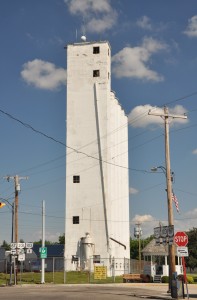In the last quarter century, states from Virginia to Colorado to California have seen privatizing roads as a great source of immediate cost savings and cash. But what do these deals mean in the long term? What effects will they have on our society? And what does the nineteenth century experience with privatized roads and bridges teach us?
Penn State law professor Ellen Dannin argues in a must-read on the American Constitution Society blog (via Truthout) the states have chosen ‘The Toll Road to Serfdom’.
Today’s deals still include … terms intended to make the toll road drivers’ only alternative. Commonly found “noncompete” terms forbid building or improving “competing” road or mass transit systems. They may also require what is called “traffic calming” but which means by narrowing lanes or making other changes to make alternative routes unpleasant or less useful. Other contract terms require that the government “partner” compensate private contractors for “adverse actions,” such as promoting car pooling to lower air pollution and urban congestion that could affect revenues. For the next 40 years, the HOT lanes contract with Transurban of Australia and Fluor Corporation of Texas requires Virginia to reimburse the private companies whenever Capital Beltway carpools exceed 24 percent of the traffic on the carpool lanes – or until the builders make $100 million in profits.
That these deals are bad financially and environmentally is clear. But those may be the least important of their effects.

In a very readable and well-documented law journal article (Crumbling Infrastructure, Crumbling Democracy: Infrastructure Privatization Contracts and Their Effects on State and Local Governance.), Prof. Dannin shows the corrosive effects of public facilities – highways, parking garages, parking meters, etc. – privatization on our political and social systems:
Missing from public discussion and scrutiny have been the contract terms that make government parties to infrastructure privatization contracts the insurer of the private contractor‘s financial success. The three most commonly found provisions that can require governments to reimburse private contractors for lost anticipated revenue are (1) compensation events; (2) noncompetition provisions; and (3) adverse action. or stabilization. clauses. Failing to have a national conversation about these terms and their effects has left the public ignorant as to how these contract terms shift power over government policy and actions to private contractors. [Crumbling Infrastructure ¶15]
What does a ‘compensation event’ look like? And what might its implications be? Says Prof. Dannin:
For example, in 2008, the State of Indiana reimbursed the private Indiana Toll Road operator $447,000 for waiving tolls of people evacuated during severe flooding. Had the road not been privatized, the state would have waived the tolls and simply collected less revenue. The contract, however, put the contractor in a much better financial situation than the state, because it did not lose toll revenues. In effect, these reimbursement terms make government the contractor‘s insurer and guarantor. The terms may even create financial disincentives to government‘s taking life-saving action. That is, a state or local government that is so short of money that it must sell valuable public infrastructure has more to consider in a disaster than just saving lives. If it needs to ask how much protection it can afford, it may, on the margins, be tempted to decide against taking actions that will require reimbursing the contractor. [Crumbling Infrastructure ¶18 (footnote omitted)]
The effects of the March 15 tsunami on Japan give this example an uncomfortable palpability. The implications of other aspects of public facilities privatization, Prof. Dannin shows, are equally frightening.
Prof. Dannin focuses on the effects of the present on the future. She does not point out that we’ve been here before.
It is only a slight exaggeration to say that the charters given private companies – for profit corporations – to provide bridges, canals, highways, etc., defined the American law of corporations from the Constitution’s adoption well into the twentieth century. For example: Charles River Bridge v. Warren Bridge, 11 Pet. (36 U.S.) 420 (1837).
Reliance on private facilities for public travel led to inconveniences, at best, and extortions, at worst. This system drove an ever-increasing public outrage through out the nineteenth century. With the banks, these companies were the ‘special interests’ the Jacksonians and, later, the Populists fought.
The tangible results of that long fight were the twentieth century systems of US Highways (e.g., US 40, ‘the National Road’) and Interstate Highways (e.g., I-90) free (originally) of tolls.
Public facilities privatizations return us to the nineteenth century. They are, indeed, ‘The Toll Road to Serfdom’, the express lane to a past no one has ever thought was a golden age – especially those who endured it.
Recent Comments